
Timeline
Title
Country/Nationality
John Bunyan
John Bunyan was an English writer and Puritan preacher best remembered as the author of the Christian allegory The Pilgrim's Progress. In addition to The Pilgrim's Progress, Bunyan wrote nearly sixty titles, many of them expanded sermons.
Bunyan is best remembered for The Pilgrim's Progress, a book which gained immediate popularity. By 1692, four years after the author's death, publisher Charles Doe estimated that 100,000 copies had been printed in England, as well as editions "in France, Holland, New England and Welch". By 1938, 250 years after Bunyan's death, more than 1,300 editions of the book had been printed.
In 1688, on his way to London, Bunyan made a detour to Reading, Berkshire, to try and resolve a quarrel between a father and son. Continuing to London to the house of his friend, grocer John Strudwick of Snow Hill in the City of London, he was caught in a storm and fell ill with a fever. He died in Strudwick's house on the morning of 31 August 1688 and was buried in the tomb belonging to Strudwick in Bunhill Fields nonconformist burial ground in London.
Bunyan's estate at his death was worth £42 19s 0d. His widow Elizabeth died in 1691
Books by John Bunyan
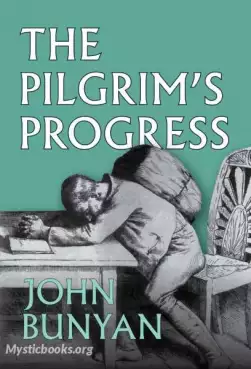
The Pilgrim's Progress
A journey that takes the hero, Christian, through the varied landscapes that constitute life and through the events that happen to human beings is the plot of The Pilgrim's Progress by John Bunyan. Readers who have read and loved Louisa May Alcott's...
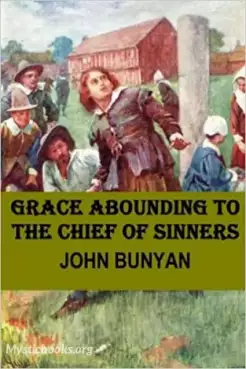
Grace Abounding to the Chief of Sinners
Grace Abounding to the Chief of Sinners, or a Brief Relation of the Exceeding Mercy of God in Christ to his Poor Servant John Bunyan is a Puritan spiritual autobiography written by John Bunyan. It was composed while Bunyan was serving a twelve-year p...

Miscellaneous Pieces
John Bunyan, a Christian writer and preacher, was born at Harrowden (one mile south-east of Bedford), in the Parish of Elstow, England. He wrote The Pilgrim's Progress, arguably the most famous published Christian allegory. In the Church of England h...

A Holy Life: The Beauty of Christianity
Written in the late 1600s by John Bunyan, author of The Pilgrim's Progress, this treatise exhorts Christians to holy living. Bunyan takes as his text Psalm 93:5, 'Holiness becometh thine house, O Lord, forever,' and from it he presents true holiness...
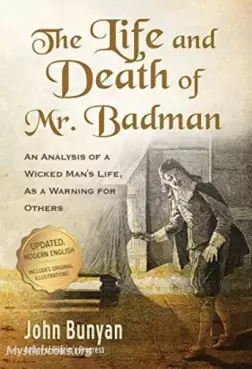
The Life and Death of Mr. Badman
The Life and Death of Mr. Badman is a 1680 book by John Bunyan. It was designed as a companion to The Pilgrim's Progress and was published by Nathaniel Ponder. The two characters have a dialogue about sin and redemption over the course of a long day.

A Treatise of the Fear of God
Delve into the depths of the human soul and explore the profound teachings of the Fear of God in John Bunyan's enlightening masterpiece. In "A Treatise of the Fear of God" by renowned Christian writer John Bunyan, readers are taken on a transformativ...

Holy War
The Holy War is perhaps John Bunyan's second most popular work, after The Pilgrim's Progress. It tells the story of a fierce battle to take control of a city from its rightful ruler. (Summary by Joy Chan)

Pélerinage d'un nommé Chrétien, Le : écrit sous l'allégorie d'un songe
« Le pélerinage d'un nommé Chrétien » est un roman allégorique de John Bunyan, publié en 1678. L'auteur rédigea cet ouvrage en 1675, alors qu'il était emprisonné pour avoir violé le Conventicle Act, qui punissait les personnes coupables d'avoir organ...

To Be a Pilgrim
This poem, excerpted from John Bunyan's classic allegory, The Pilgrim's Progress, is both a reminder of the Christian journey and a call to persevere in faith.
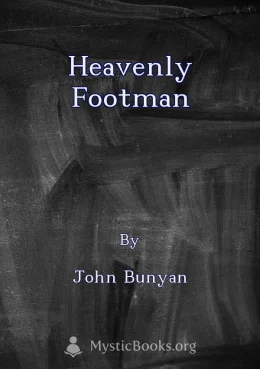
Heavenly Footman
The Heavenly Footman is a classic Christian allegory written by John Bunyan in 1680. It tells the story of a man named Christian who sets out on a journey to the Celestial City. Along the way, he encounters many obstacles and temptations, but he is d...
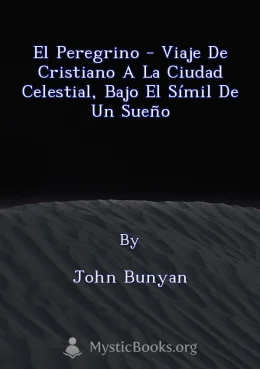
El Peregrino - Viaje de Cristiano a la Ciudad Celestial, bajo el símil de un sueño
El Peregrino es una alegoría cristiana que narra el viaje de un hombre llamado Cristiano desde la Ciudad de Destrucción hasta la Ciudad Celestial. El viaje simboliza la vida espiritual de un creyente, incluyendo sus luchas contra el pecado, las tenta...